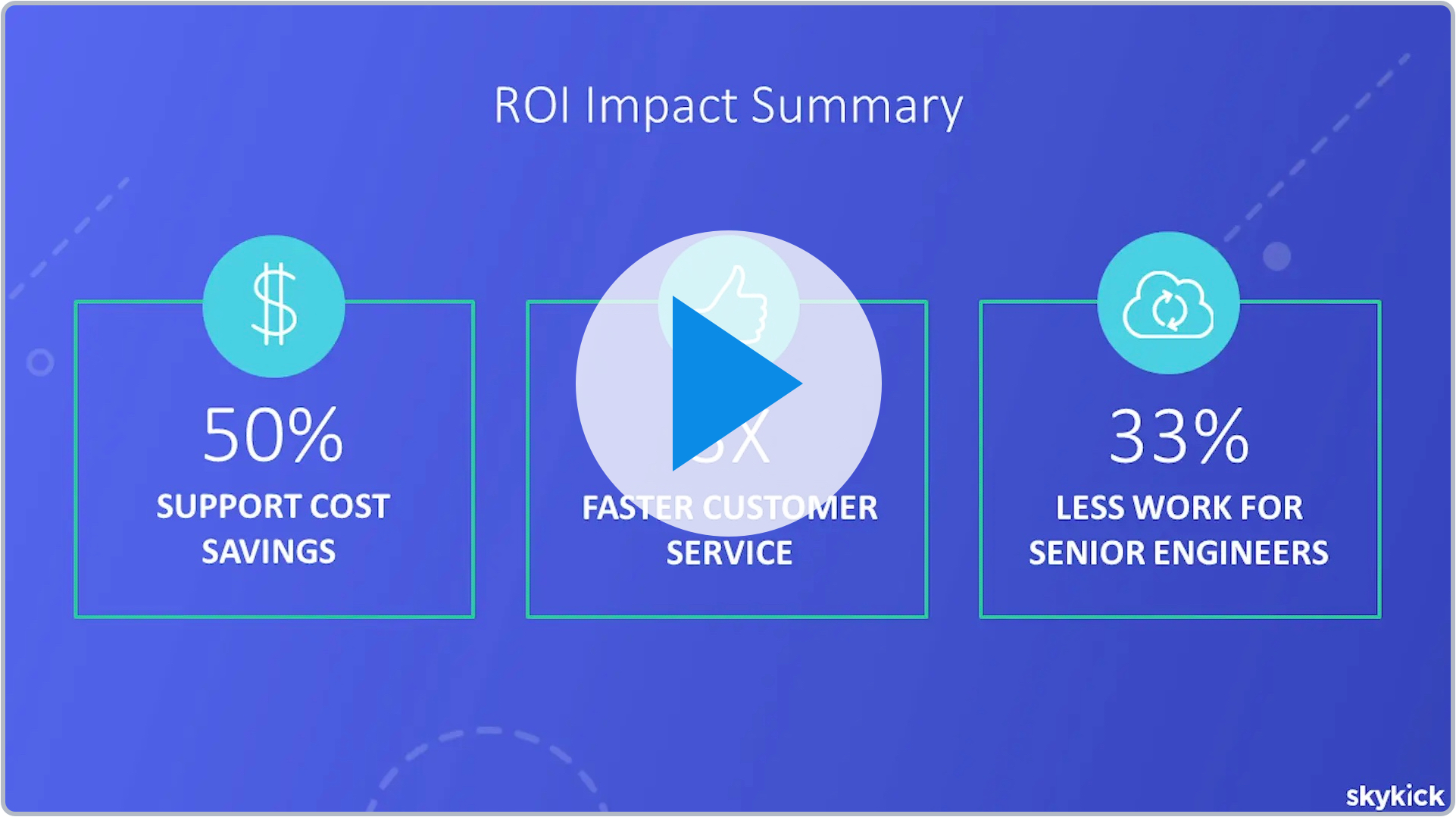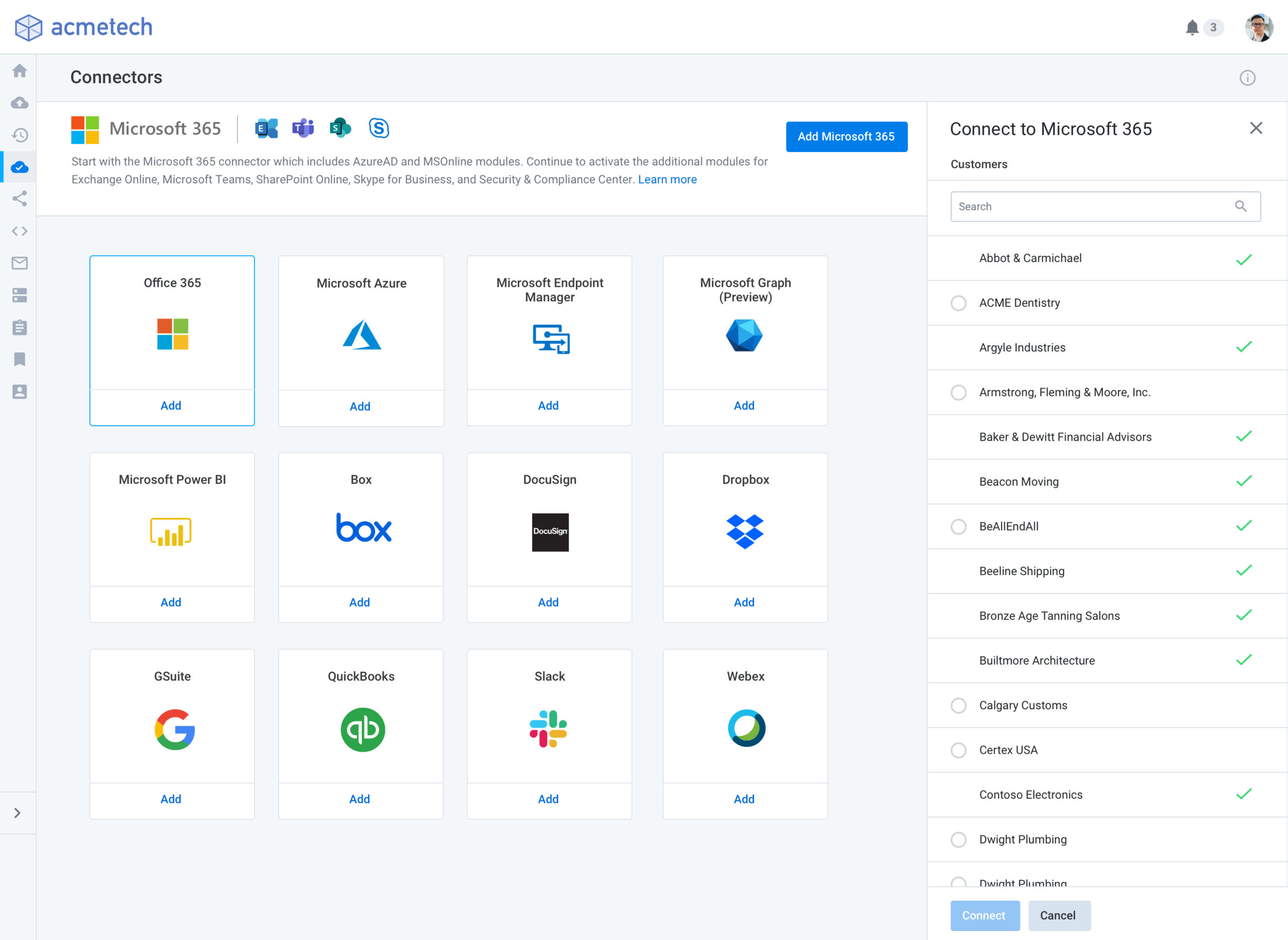Transform the economics of your cloud operations with automation re-imagined.
Grow operational efficiency and delight customers
5-10x more services to manage in the cloud
Only 54% of support tickets resolved on first contact
3.5 days for support ticket remediation
Up to 45% lower CSAT with second call for same issue
Drive efficiencies by resolving help desk tickets faster, lowering costly escalations, and increasing job satisfaction.
Save over 10 times the cost of Cloud Manager by centrally managing cloud services across a single pane of glass.
Increase customer satisfaction by achieving up to 75% first contact resolution and automating their license audits.

Strengthen security and compliance with a cloud-native solution
Data breaches in SMB businesses can top $2.6M
77% of MSPs looking to outsource cyber-security themselves!
Only 30% of SMBs are fully prepared for the shift to remote work
Ransomware attacks have spiked 148% amid the COVID-19 pandemic
Secure your business and customer environments with robust security layers and role-based controls.
Gain visibility across your team, services, and disparate set of customer apps for informed, data-driven action.
Enable modern work best practices including assessments, remediation services and security scores.

Grow your topline with new SaaS offerings
77% of ITSP’s want to manage non-Microsoft SaaS apps
45% of MSPs don’t add SaaS services because of operational complexity
50% of MSP growth will come from MS Teams and collaboration apps
Increase your revenues at least two-fold with playbook templates to deliver security-based management services.
Develop new Azure service offerings such as deploying windows virtual desktops.
Diversify portfolio by managing apps to provide a profitable full-service MSP experience.

Frequently asked questions
How does Cloud Manager help IT Providers administer Microsoft 365?
Cloud Manager enables comprehensive administration of Microsoft 365 services with multi-tenant and cross-portal automation through built-in connectors to Microsoft services and modules. Instead of hopping between admin portals and PowerShell, Cloud Manager empowers Help Desk technicians to easily administer hundreds of support tasks for Microsoft 365 and other SaaS across customers. What’s more, engineers can easily create, save, manage, and share PowerShell workflow automation that extends across workloads.
The Microsoft 365 connector includes the Azure AD and MSOnline modules along with six optional modules that cover the breadth of deployment, configuration, management, and support actions for Microsoft 365. These include all PowerShell cmdlets, including many that can be run immediately without PowerShell expertise. Cloud Manager supports modules for Azure Information Protection (AIP), Exchange Online, Microsoft Teams, SharePoint Online, Security & Compliance, and Skype for Business and connectors for Microsoft Graph, Azure, Endpoint Manager (Intune).
For more information, see Microsoft 365 connectors and modules
How does Cloud Manager help IT providers manage SaaS applications?
Recent events have accelerated an already fast-growing $119B SaaS application market, creating significant management and security challenges for SMBs. However, many MSPs have chosen not to support many SaaS services, if any, beyond Microsoft due to each SaaS service having its own unique management portal to learn and navigate. This makes it difficult to scale, as the more services one manages the more portals there are to learn to fulfill even the simplest support requests.
Cloud Manager provides a central interface for multi-SaaS automation. With pre-built, tested commands that communicate with SaaS application APIs, even the frontline Help Desk can safely and securely run multi-SaaS, pre-authenticated automation through the Command Center.
Can I manage devices with Cloud Manager?
Cloud Manager offers the capability to connect to and manage devices from within the Cloud Manager interface. This enables coordinated administration of on-prem devices used in hybrid environments.
Cloud Manager utilizes Microsoft IoT Hub and the Cloud Manager Device Agent to facilitate communication between Cloud Manager and the connected device. This lightweight agent is installed on the device and registers the device with IoT Hub to establish and maintain secure communication. It also indexes the supported PowerShell commands on the device allowing them to be run from Cloud Manager. Additionally, by creating a connection to the Sync Server, Partners can build commands that sync to the cloud immediately rather than waiting for the next scheduled sync.
For more information, see Adding connectors to on-premises devices.
How is Cloud Manager different than an RMM tool?
RMM tools are typically focused on the remote monitoring and management of on-premises hardware and OS endpoints. And while many can automate some tasks across tenants within that environment, they typically do not scale to support cloud-based applications. Only Cloud Manager can automate and manage both multi-tenant cloud and on-premises endpoints with the ability to easily and efficiently automate tasks across SaaS applications, all from a single interface.
IT Providers can easily leverage multi-tenant capabilities in Cloud Manager to more efficiently monitor, manage, discover, and report on endpoints across customers. Cloud Manager includes a connector to Microsoft Endpoint Manager, which encompasses the convergence of Intune and System Center Configuration Manager (ConfigMgr) and the Device Management Admin Center (DMAC) and Desktop Analytics. Using the cross-tenant capabilities of Cloud Manager, along with its Endpoint Manager connector and over 1,000 built-in cmdlets, you can create automation to standardize endpoint management settings and policies for each customer you add to your support practice, and empower your frontline Help Desk to fulfill support requests related to endpoint management.






